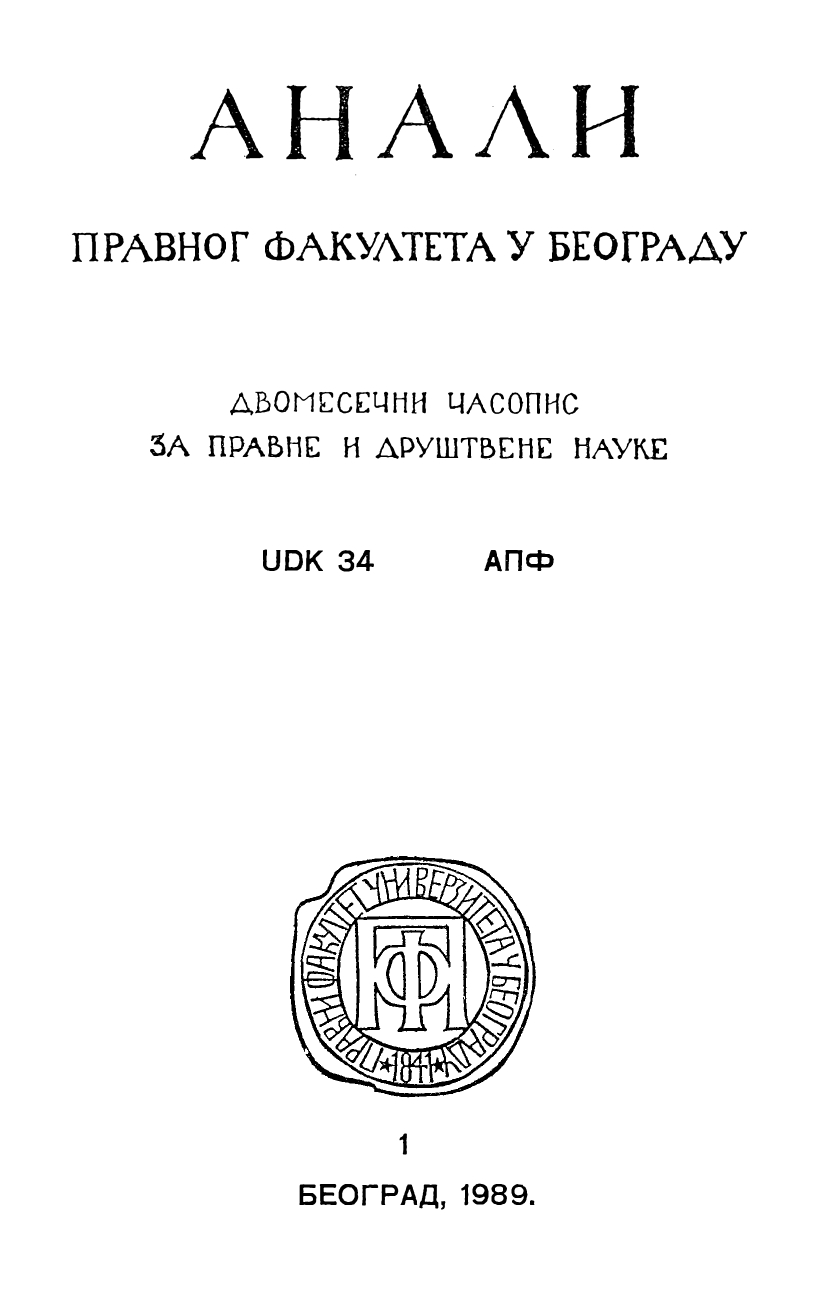УСТАВНО ПРАВО ЗА БУДУЋНОСТ ПРИМЕР ТУНИСА
A CONSTITUTIONAL LAW FOR THE FUTURE THE EXAMPLE OF TUNISIA
Author(s): Abdelfattah AmorSubject(s): Law, Constitution, Jurisprudence, Constitutional Law
Published by: Правни факултет Универзитета у Београду
Summary/Abstract: The author deals with the notion of constitutional law for the future by using the example of Tunisia. The introduction is dedicated to necessary relatedness between the present and the future in terms of constitutional law since it realizes its function in the future through progressive reality. Every constitutional law is related to the present times, but also to the past and the future. Main issue here is to ascertain the relevant role of each of these times. Accordingly, the constitutional law may be retrospective, namely turned toward „sources and traditions” (the case of the Islamic Republic of Iran), but also projected into future through gradual changing of reality towards set aims. Tunisia is the example of this second case. The function of the constitutional law for the future in Tunisia is considered at three différent levels: state, nation, and the individual. The above function at the level of the state is effected by making possible gradual depersonalization of power. This evolution has been realized in Tunisia since its independence in 1956 until November 7, 1987, when there was a change of the head of state by legal means. In such a way, the institution was able to replace the man by peaceful manner. At the level of nation the constitutional law for the future has motivated research for national identity, independently of the Arab and Muslim world. National unity, which is proclaimed by the Constitution,' did not exist at the moment of its enacting, instead being gradually put into effect. Enacting of the Constitution of Tunisia on June 1, 1959 made possible the tran-; sformation from the subject to the citizen status. The legal element in this case too was before the sociological one. The Constitution made possible the realization of pluralism of opinions and pluri-party system which was involved in it. The usual procedure of creation of legal norms is the one which begins with the sociological element only to proceed to the legal element. The law becomes operational out of the programmatic substance. The example cited by the author in this resepect is the freedom of association. Other examples are the instituting of the House of Representatives and of a body for the control over constitutionality, which illustrates the shifting from the request for the change to the protection of such change. Finally, the author concludes that Tunisian constitutional law, while confirming the basic principle of civic community and that of the institutional, was intended to disrupt with former practice and to provoke such acceleration of history which could, in a way, compensate for the difficulties inherited from the past.
Journal: Анали Правног факултета у Београду
- Issue Year: 37/1989
- Issue No: 1
- Page Range: 42-51
- Page Count: 10
- Language: Serbian

